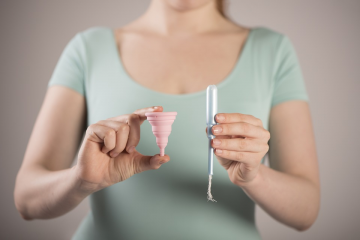Is it bad if im not sore after a workout?
Is it bad if im not sore after a workout?
Not getting sore after training is not a bad thing. Soreness shouldn’t be used as a measure of how effective your workout is. Instead, you should focus on other factors such as whether you can lift heavier weights, push through your workout more comfortably or add extra sets or reps to your session.
Does no soreness mean no growth?
So, what we know so far is that muscle soreness does not equal muscle growth and that when there is muscle soreness, performance decreases.
Are you still building muscle if you’re not sore?
Myth #2: It’s not a good workout unless you get DOMS. We often wear our DOMS as a badge of honor and believe that if we’re not sore, we’re not doing enough during out workouts. But that’s just not true.
How do you know if your workout is working?
How to tell your workout is working
- 1 – You don’t get strains and pains.
- 2 – You’ve not plateaued.
- 3 – You’re still full of energy.
- 4 – You’re hitting personal physical goals.
- 5 – You’re maintaining good levels of metabolism.
- 6 – You’re not procrastinating.
Should I workout if my muscles are still sore?
In most cases, gentle recovery exercises like walking or swimming are safe if you’re sore after working out. They may even be beneficial and help you recover faster. But it’s important to rest if you’re experiencing symptoms of fatigue or are in pain.
How long till you see results from working out?
Within three to six months, an individual can see a 25 to 100% improvement in their muscular fitness – providing a regular resistance program is followed. Most of the early gains in strength are the result of the neuromuscular connections learning how to produce movement.
How do you know if you worked out too hard?
Emmons said if your energy is low and you’re unable to function on a regular day-to-day basis, you’re most likely training too hard and not taking enough time to recover between sessions. Plus, if you’re feeling decreased energy levels with your workouts, that’s also a sign you’re working too hard.
How do I know I’m gaining muscle and not fat?
Aesthetically, it should be pretty easy to tell if you’re generally gaining muscle or fat. When you gain muscle, you’ll notice that your muscles naturally look more defined and are more visible, Berkow said. (In terms of seeing your abs specifically, you’d have to also lose fat for that.)
Is it OK to work out every day?
A weekly day of rest is often advised when structuring a workout program, but sometimes you may feel the desire to work out every day. As long as you’re not pushing yourself too hard or getting obsessive about it, working out every day is fine.
Why you’re so sore after you work out?
Soreness is a natural effect of exercise and a sign muscles are benefiting from all that hard work. Most people will experience muscle aches at some point, especially if they’re new to working out or starting a new training program (sorry!).
What is the best way to recover after a workout?
There are many methods for workout recovery, but some of the best ways to recover from a workout are stretching, massage, sleep, and active recovery.
What causes sore muscles after working out?
Muscle soreness is most commonly seen after performing eccentric exercise such as running, resistance training and plyometrics. These exercises cause damage to muscle cell membranes, which cause an inflammatory response.
How do you treat sore muscles after a workout?
For temporary relief from muscle pain and soreness, you might try taking a warm bath with Epsom salt. Foam rolling. A light 10- to 15-minute session of foam rolling on sore muscles post-workout may help soothe aches and pains and reduce the effects of DOMS.


